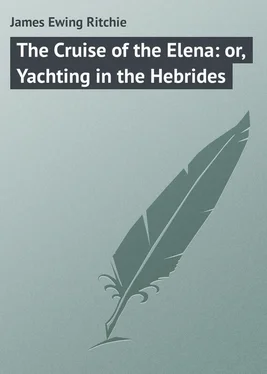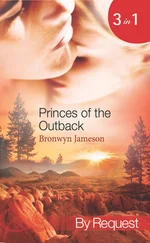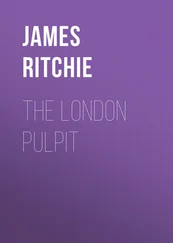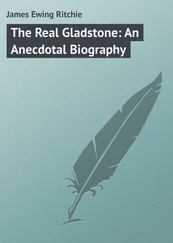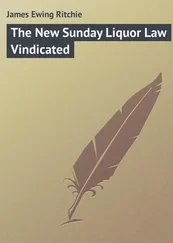James Ritchie - The Cruise of the Elena - or, Yachting in the Hebrides
Здесь есть возможность читать онлайн «James Ritchie - The Cruise of the Elena - or, Yachting in the Hebrides» — ознакомительный отрывок электронной книги совершенно бесплатно, а после прочтения отрывка купить полную версию. В некоторых случаях можно слушать аудио, скачать через торрент в формате fb2 и присутствует краткое содержание. Жанр: foreign_prose, на английском языке. Описание произведения, (предисловие) а так же отзывы посетителей доступны на портале библиотеки ЛибКат.
- Название:The Cruise of the Elena: or, Yachting in the Hebrides
- Автор:
- Жанр:
- Год:неизвестен
- ISBN:нет данных
- Рейтинг книги:4 / 5. Голосов: 1
-
Избранное:Добавить в избранное
- Отзывы:
-
Ваша оценка:
- 80
- 1
- 2
- 3
- 4
- 5
The Cruise of the Elena: or, Yachting in the Hebrides: краткое содержание, описание и аннотация
Предлагаем к чтению аннотацию, описание, краткое содержание или предисловие (зависит от того, что написал сам автор книги «The Cruise of the Elena: or, Yachting in the Hebrides»). Если вы не нашли необходимую информацию о книге — напишите в комментариях, мы постараемся отыскать её.
The Cruise of the Elena: or, Yachting in the Hebrides — читать онлайн ознакомительный отрывок
Ниже представлен текст книги, разбитый по страницам. Система сохранения места последней прочитанной страницы, позволяет с удобством читать онлайн бесплатно книгу «The Cruise of the Elena: or, Yachting in the Hebrides», без необходимости каждый раз заново искать на чём Вы остановились. Поставьте закладку, и сможете в любой момент перейти на страницу, на которой закончили чтение.
Интервал:
Закладка:
In about half-an-hour after leaving Greenock, I was at Kirn, a beautiful watering-place in Argyleshire, in one of the handsomest villas of which I was to find my host, and the owner of the Elena , one of the finest of the four or five hundred yachts which grace the lake-like waters of the Clyde, and which carry the ensign of the Royal Clyde Yacht Club. A volume might be written of the owner, whose place of business in Glasgow is one of the real wonders of that ancient town. Morrison, the founder of the Fore Street Warehouse, and the father of the late M.P. for Plymouth, was accustomed to say that he owed all his success in life to the realisation of the fact that the great art of mercantile traffic was to find out sellers rather than buyers; that if you bought cheap and satisfied yourself with a fair profit, buyers – the best sort of buyers, those who have money to buy with – would come of themselves. It is on this principle the owner of the Elena has acted. It is worth something to see the Sèvres china, the fine oil paintings, the spoils of such palaces as the Louvre or St. Cloud, the rarest ornaments of such exhibitions as those of Vienna, all gathered together in the Glasgow Polytechnic, and to seek which the proprietor is always on the look-out, and to recollect that all this display has been got together by one individual, who began the world in a much smaller way, and who is still in the prime of life. A further interest attaches to the gentleman of whom I write, inasmuch as it was under his roof that the first article of the Christian Cabinet , swallowed up in the Christian World , was written. It may be to this it is due that at once I am at home with him, and that here on board the Elena we chat of what goes on in London as if we had known each other all our lives. By my side is his son-in-law – one of those well-trained, thoughtful divines who have left Scotland for the South, and who are doing so much to introduce into England that Presbyterianism the yoke of which our fathers could not bear, but on which we, their more liberal sons, have learned to look with a less jealous eye; and no wonder, for to know such a man as the Doctor is to love him. And now let me say a word as to the Elena , which is a picture to admire, as she floats calmly on the water, or speeds her way from one scene of Scottish story and romance to another. It is rarely one sees a yacht more tastefully fitted-up, and we have a ladies’ drawing-room on board not unworthy of Belgravia itself. She is slightly rakish in build, but not disagreeably so. Her tonnage is 200 tons, and her crew consists, including the stoker and steward, of some eight clever-looking, sailor-like men. As we sleep on board I am glad of this. With Gonsalo I exclaim, “The wills above be done; but I had rather die a dry death.”
And now, after skirting the greater and the lesser Cumbraes, and the cave where Bruce hid himself, &c., &c., we are coaling off Ardrossan, apparently a busy town on the Ayrshire coast. I have been on shore, and have seen no end of coal and lumber ships in the docks, and in the streets are many shops with all the latest novelties from town, and with ladies lounging in and out. I know I am in Scotland, as I hear the bagpipes droning in the distance, and stop to judge the beef and mutton exposed for sale at the shop of the nearest “flesher.” On a hill behind me is a monument which, the natives inform me, is in memory of Dr. Mac-something, of whom I never heard, and respecting whom no one apparently can tell me anything. I know further I am in Scotland, as I see everywhere Presbyterian places of worship, and hear accents not familiar to an English ear. I know also I am in Scotland, as I see no gaudy public-house with superfine young ladies to attract my weak-kneed brethren to the bar, but instead dull and dark houses, in which only sots would care to go. I know I am in Scotland, because it is only there I read of “self-contained houses” to let or sell; and as to Ardrossan in particular, let me say that it is much frequented by the Glasgow merchants in the season; that it, with its neighbour Saltcoats, supports a Herald , published weekly for a penny; that from it, as a local poet writes —
“We see bold Arran’s mountains gray,
In dark sublimity, stand forth in grandeur day by day.”
The poet speaks truly. As I write I see the heights of the Scottish Alps, whose feet are fringed with the white villas of the Glasgow merchants for miles, and washed by the romantic waters of the Clyde.
Anciently Ardrossan was a hamlet of miserable huts, says Mr. Murray – Mr. Thomas, of Glasgow, not Mr. John, of London – gathered around an old castle on Castle Hill, the scene of some of Wallace’s daring achievements, and destroyed by Cromwell. It was said to have belonged to a warlock, known as the Deil of Ardrossan. The present town was originated in 1806 as a seaport for Glasgow, but, like Port Glasgow, proved a failure in this respect. It is, however, generally well filled with shipping. The Pavilion, a residence of the Earl of Eglinton, adjoins the town. Steamers run thence to Belfast and Newry, and to Ayr and Arran and Glasgow.
Let me here remark, as indicating the cultivated character of the Scotchman, one is surprised at the number of local papers one sees in all the Scotch towns. They are mostly well written, and have a London Correspondent. It is beautiful to find how in the Scotch towns there is still faith left in the London Correspondent. The people swallow him as they do the Greater and Lesser Catechism, and even the London papers quote him as with happy audacity he describes the dissensions in the Cabinet – the hopes and fears of Earl Beaconsfield, the secret purposes of the garrulous Lord Derby, or the too amiable and communicative Marquis of Salisbury. When yachting I made a point to buy every Scotch paper I could, for the express purpose of reading what Our London Correspondent had got to say. I was both amused and edified. It is said you must go from home to hear the news. I realised that in Scotland as I had never done before. On the dull, wet days, when travelling was out of the question, what a boon was our “Own Special London Correspondent!”
CHAPTER III.
a sunday at oban
Taking advantage of a fine day, we left Ardrossan, with its coal and timber ships, early one Saturday, and were soon tossing up and down that troubled spot known as the Mull of Kintyre. It was a glorious sight, and one rarely enjoyed by tourists, who make a short cut across a canal, and lose a great deal in the way of beautiful effects of earth, and sea, and sky. On our left was the Irish coast, here but fifteen miles across, and far behind were the dark forms of the mountains of Arran. Islay, famed for its whisky in modern and for its romantic history in ancient times, next rises out of the waters. Jura, with its three Paps, as its hills are called, comes next, and then, in the narrow sound between Jura and Scarba, there is the terrible whirlpool of Corrybrechan, the noise and commotion of whose whirling waves are often, writes the local Guide-book, audible from the steamer. The tradition is, as referred to in Campbell’s “Gertrude of Wyoming,” that there a Danish prince, who was foolhardy enough to cast anchor in it, lost his life. To-day it is silent and at rest, and it requires some stretch of imagination to believe, as the poet tells us, that “on the shores of Argyleshire I have often listened with delight to the sound of the vortex at the distance of many leagues.” At length we reach Scarba, Mull is swiftly gained, and there, on the other side of us, not, however, to be visited now, are Staffa and Iona. Altogether, we seem in a deserted district. It is only now and then we see a house, or gentleman’s residence, and, except where we pass some slate works on our right, the rocks and hills around seem utterly unutilised. Occasionally we see a few sheep or cattle feeding, and once or twice we are cheered with arable land, and crops growing on it; but the rule is to leave Nature pretty much to herself. It is the same on the water. We on board the fairy Elena
Читать дальшеИнтервал:
Закладка:
Похожие книги на «The Cruise of the Elena: or, Yachting in the Hebrides»
Представляем Вашему вниманию похожие книги на «The Cruise of the Elena: or, Yachting in the Hebrides» списком для выбора. Мы отобрали схожую по названию и смыслу литературу в надежде предоставить читателям больше вариантов отыскать новые, интересные, ещё непрочитанные произведения.
Обсуждение, отзывы о книге «The Cruise of the Elena: or, Yachting in the Hebrides» и просто собственные мнения читателей. Оставьте ваши комментарии, напишите, что Вы думаете о произведении, его смысле или главных героях. Укажите что конкретно понравилось, а что нет, и почему Вы так считаете.
